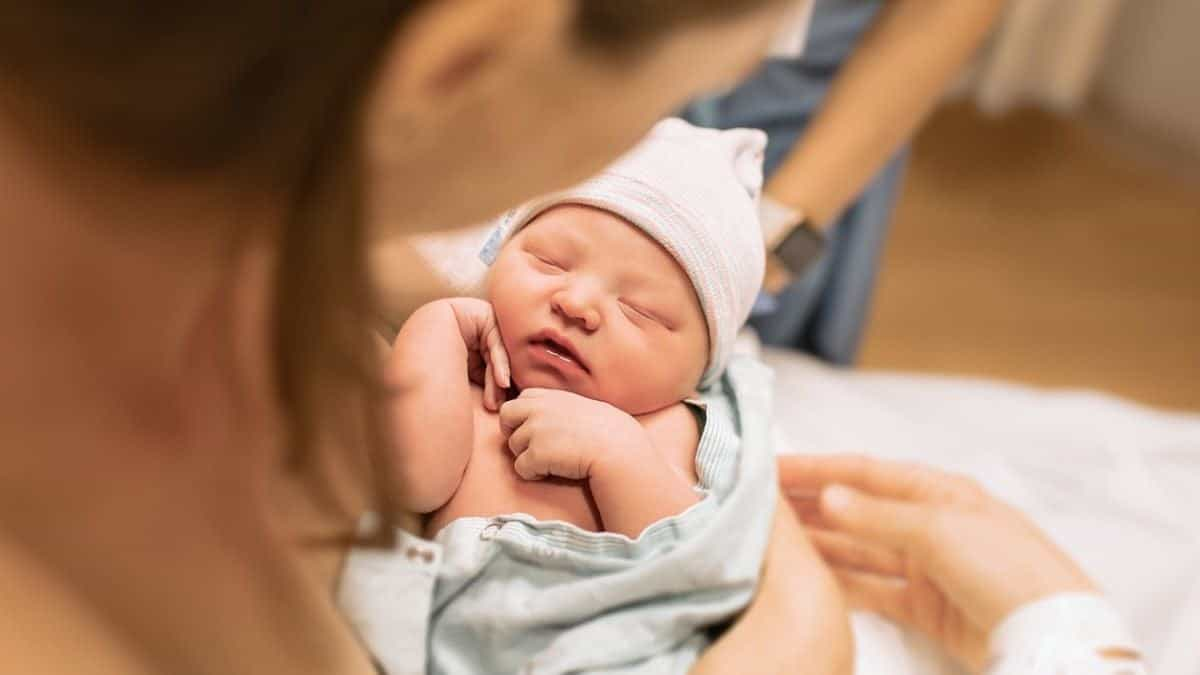Show table of content Hide table of content
The birth of a baby following a uterus transplant has marked a groundbreaking medical milestone in the United Kingdom. This extraordinary event represents hope for thousands of women born without a functioning uterus who dream of carrying their own children. The remarkable journey of Grace Davidson highlights the evolving possibilities in reproductive medicine and the profound impact of familial love.
Medical breakthrough brings new hope for women with MRKH syndrome
On February 27, 2025, a healthy baby girl was welcomed into the world at Queen Charlotte’s and Chelsea Hospital, making history as the first child born after a uterus transplant in the United Kingdom. This significant achievement offers new possibilities for women affected by Mayer-Rokitansky-Küster-Hauser syndrome (MRKH), a rare condition that affects approximately one in 5,000 women.
MRKH syndrome typically results in an underdeveloped or absent uterus, making pregnancy impossible through conventional means. Despite this condition, women with MRKH have functioning ovaries that produce eggs, allowing for potential fertility options with medical intervention. Similar to how species can adapt to challenging environments over time, medical science continues to evolve solutions for reproductive challenges.
Life This TikToker buys a used van and realizes it has a hidden surveillance device.
Grace Davidson, the pioneering mother in this landmark case, underwent fertility treatments with her husband before the transplant. Their efforts resulted in seven embryos being frozen for future in vitro fertilization (IVF) procedures. The successful birth demonstrates the remarkable progress in reproductive medicine and offers a promising pathway for women with similar conditions.
Sisterly bond at the heart of medical innovation
The uterus transplant that made Grace’s pregnancy possible came from her 42-year-old sister, Amy Purdie, who had already completed her own family with two children. This selfless act of donation occurred in February 2023, with the transplant surgery performed by specialist surgeon Isabel Quiroga. The procedure required exceptional precision and expertise, building on knowledge gained from previous successful transplants worldwide.
In a touching tribute to both her sister and the surgeon who made her motherhood journey possible, Grace named her daughter Amy Isabel. This gesture symbolizes the extraordinary collaboration between family love and medical expertise that brought this miracle to life. The emotional connection between the sisters mirrors other heartwarming stories of reunion and sacrifice, reminding us of the power of family bonds that can sometimes span years, like when long-lost companions finally return to those who love them.
“We have received the most beautiful gift we could have hoped for,” Grace shared about her daughter’s birth. “I hope this technique will provide an additional option for women who otherwise could not carry their own child.” For Amy, the birth has been described as an “absolute joy,” reinforcing the profound impact of her generous donation.
Life Say goodbye to flat and deep plates, here’s the new dinnerware trend for 2025.
Global progress in uterus transplantation
The first uterus transplant was performed in Sweden in 2013, establishing a foundation for subsequent procedures worldwide. Since this pioneering operation, more than 100 uterus transplants have been conducted globally, resulting in approximately 50 healthy births. Each successful case contributes valuable data and experience to improve future procedures.
France has also witnessed similar success stories, with a woman born without a uterus giving birth to a baby girl in a Parisian hospital in 2021. In the United States, these medical journeys have even fostered unexpected friendships between recipients and donors, creating bonds that extend beyond the operating room.
The commitment of medical professionals to advancing this field demonstrates remarkable dedication, similar to how quick-thinking individuals can make life-changing interventions in critical moments. Each case represents not just a medical procedure but a profound human story of hope, determination, and scientific innovation.
Implications for reproductive medicine
The successful birth following a uterus transplant in the UK opens new avenues for reproductive medicine. This advancement represents hope for the thousands of women affected by MRKH syndrome and other conditions that prevent uterine pregnancy. Medical experts anticipate that as techniques are refined, the procedure may become more accessible to those who need it.
Current protocols typically involve temporary transplantation, with the donated uterus removed after successful childbirth. This approach minimizes the recipient’s time on immunosuppressant medications, which are necessary to prevent organ rejection. The careful balance of medical risks and benefits reflects the thoughtful consideration that goes into these groundbreaking procedures.
The emotional impact of these medical advances extends beyond clinical outcomes. For women born without a uterus, the possibility of experiencing pregnancy represents the fulfillment of a deeply personal dream. Sometimes, acceptance comes from unexpected places, much like when those tasked with enforcing rules find themselves embracing unexpected visitors instead.
As research continues and more successful cases emerge, medical professionals remain cautiously optimistic about the future of uterus transplantation. The UK milestone adds to a growing body of evidence supporting the procedure’s viability and importance in reproductive medicine. For women like Grace Davidson, these advances transform what once seemed impossible into a life-changing reality, expanding the boundaries of reproductive possibilities one successful birth at a time.


